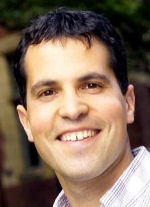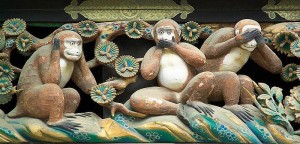Has ordered a cabinet for his insects; hopes WDF will soon come to Cambridge to see his collection. Has exchanged specimens with Leonard Jenyns.
Thanks JSH for his address [Address delivered in the Ipswich Museum on 9th March 1848]. Questions a sentence which implies that only the practical use of a scientific discovery makes it worth while. The instinct for truth justifies science without any practical results. Cites his work on cirripedes.
Has heard that Louis Agassiz maintains the doctrine of several species of man "much I daresay to the comfort of the slave-holding southerners".
Homeopathy excites his wrath even more than clairvoyance.
Queries on expression among Fuegians and Patagonians.
Returns MS [of biography for Dictionary of contemporary biography (1861)]. Part was inaccurate, and there was an important omission so CD has had a new copy made.
Opinions and reviews of Origin.
CD's view on design in nature; although he does not believe in the necessity of design, he finds it hard to conclude that everything is the result of "brute force".
Comments on Owen's review of Origin [Edinburgh Rev. 111 (1860): 487-532].
Response to ARW's papers on Papilionidae ["On the phenomena of variation and geographical distribution", Trans. Linn. Soc. Lond. 25 (1866): 1-71; abstract in Reader 3 (1864): 491-3],
and man ["The origin of human races", J. Anthropol. Soc. Lond. 2 (1864): clviii-clxxxvi].
The former is "really admirable" and will be influential.
The idea of the man paper is striking and new. Minor points of difference. Conjectures regarding racial differences; the possible correlation between complexion and constitution. His Query to Army surgeons to determine this point. Offers ARW his notes on man, which CD doubts he will be able to use.
On sexual selection in "our aristocracy"; primogeniture is a scheme for destroying natural selection.
[Letter incorrectly dated March by CD.]
Falconer's death haunts him. Personal annihilation not so horrifying to him as sun cooling some day and human race ending.
His health has been wretched.
Masters has written his agreement with CD's "Climbing plants".
Thanks for MS observations on expression. Discusses hair standing on end in terror and rage. Asks JC-B to observe contraction of platysma myoides. "Your description of the grinning and exposure of the canine teeth under furious rage is excellent. I presume that you would not object to my quoting it." Asks about contraction of "grief muscles". Comments on blushing. Offers to send book by G. B. A. Duchenne [Mécanisme de la physionomie humaine (1862)].
"If you feel astonished at my bringing man & brutes so near together in their whole nature (though with a wide hiatus) I feel still more astonished, as I believe, at your judgment on this head. I much wish you had enlarged your concluding sentence a little so as to say whether you consider the ordinary mental faculties so distinct, or whether you confine the enormous difference to spiritual powers including the moral sense.--"
Darwin Correspondence Project
darwin@lib.cam.ac.uk
© University of Cambridge 2022
Website by Surface Impression



© 2024 University of Cambridge




The early 1870s were a turning point in the global debate about human evolution, with deep implications for science, colonial expansion, industrial progress, religious belief, and ethical and philosophical debate. Darwin's correspondence from this period is of fundamental importance for understanding both the development of his theory of human origins and its relationship to prevailing assumptions about human nature.